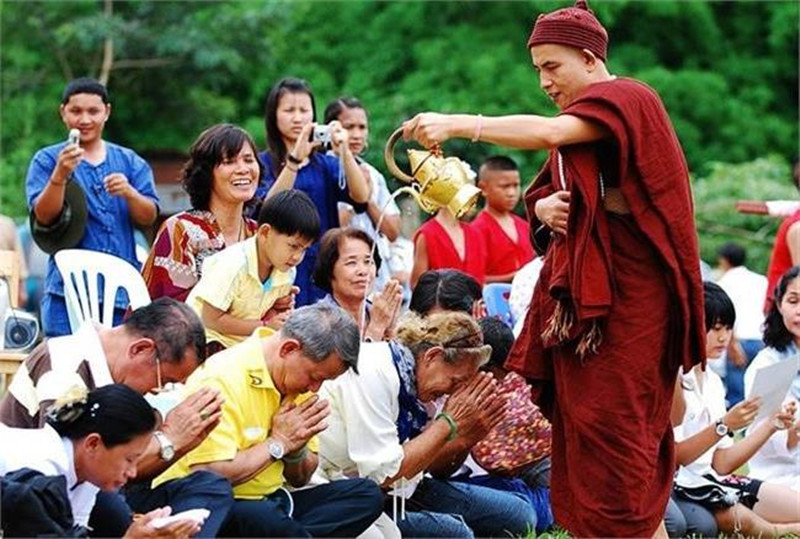Kaimen (Opening Door) Festival of Bulang Ethnic Minority
Chinese Name:布朗族开门节/奥瓦沙
English Name: Kaimen (Opening Door) Festival of Bulang Ethnic Minority
The Bulang People’s Open Door Festival is held annually on the 15th day of the twelfth month of the Dai calendar. During the festival, all the villagers bring offerings to the local Buddhist temple to perform charitable acts. The elderly listen to the monks recite scriptures in the temple for three days, during which time all production activities in the village cease. During these three nights, young men and women celebrate by singing, dancing, and playing drums and gongs. After three days, the doors of the temple are opened, allowing monks to visit different villages.
As the three-month Buddhist Lent (Vassa) comes to an end, the Bulang people of Xishuangbanna, who follow Theravada Buddhism, begin preparations for the Open Door Festival. The entire region buzzes with festive activities, creating a vibrant atmosphere. Families make decorative gold and silver flower baskets and ritual trees called “Jiebo Trees.” On the 14th day of the twelfth month in the Buddhist calendar, Bulang women descend to the plains to purchase items to be offered at the temple. They also prepare zongzi (sticky rice dumplings) and other foods to give to laypeople.
Early the next morning, people carrying their handmade offerings arrive at the temple to burn incense and pay their respects. They enter the temple one by one to present their offerings, listen to the teachings, take precepts, and receive blessings through water sprinkling. The monks recite the “Merit Sutra” and the “Abhidhamma” (the Great Law), instructing the faithful to remember the merits accumulated during the Vassa and to continue practicing generosity, ethical conduct, and good deeds after its conclusion.

The Open Door Festival is a unique cultural phenomenon that emerged from the fusion of ethnic traditions and religious practices in Xishuangbanna. It is celebrated by the Dai and Bulang people who follow Theravada Buddhism and has a strong Buddhist influence. The festival includes a variety of rich Buddhist cultural activities and is considered the most sacred event of the year by the Dai and Bulang communities.

 7 Days GolfingTour
7 Days GolfingTour
 8 Days Group Tour
8 Days Group Tour
 8 Days Yunnan Tour
8 Days Yunnan Tour
 7 Days Shangri La Hiking
7 Days Shangri La Hiking
 11 Days Yunnan Tour
11 Days Yunnan Tour
 6 Days Yuanyang Terraces
6 Days Yuanyang Terraces
 11 Days Yunnan Tour
11 Days Yunnan Tour
 8 Days South Yunnan
8 Days South Yunnan
 7 Days Tea Tour
7 Days Tea Tour
 8 Days Muslim Tour
8 Days Muslim Tour
 12 Days Self-Driving
12 Days Self-Driving
 4 Days Haba Climbing
4 Days Haba Climbing
 Tiger Leaping Gorge
Tiger Leaping Gorge
 Stone Forest
Stone Forest
 Yunnan-Tibet
Yunnan-Tibet
 Hani Rice Terraces
Hani Rice Terraces
 Kunming
Kunming
 Lijiang
Lijiang
 Shangri-la
Shangri-la
 Dali
Dali
 XishuangBanna
XishuangBanna
 Honghe
Honghe
 Kunming
Kunming
 Lijiang
Lijiang
 Shangri-la
Shangri-la
 Yuanyang Rice Terraces
Yuanyang Rice Terraces
 Nujiang
Nujiang
 XishuangBanna
XishuangBanna
 Spring City Golf
Spring City Golf
 Snow Mountain Golf
Snow Mountain Golf
 Stone Mountain Golf
Stone Mountain Golf













